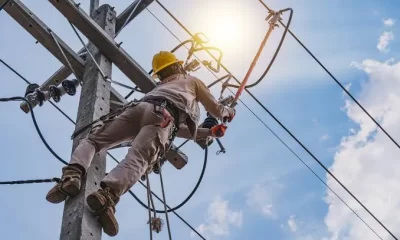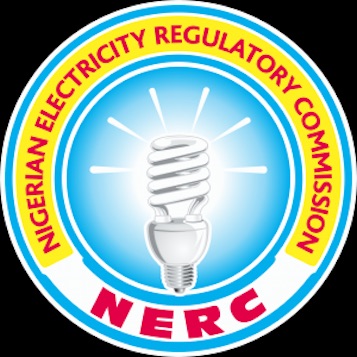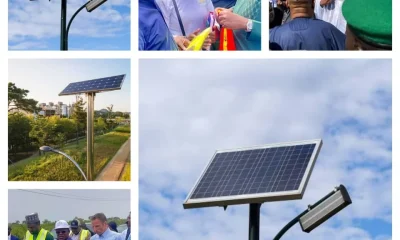InfoTech
Farmer Develops Solar Power Tricycle in Bauchi
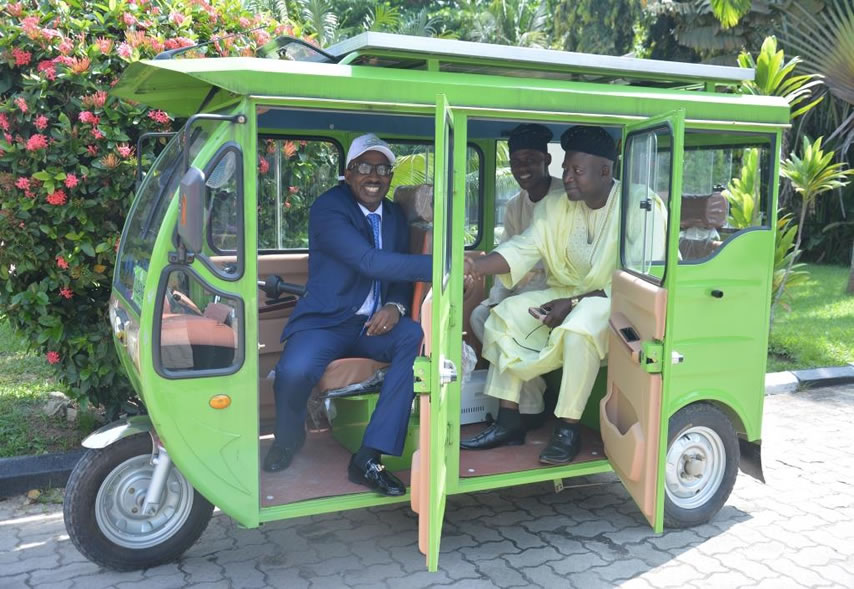
From Mohammed Muktar Umar, Bauchi
A Peasant Farmer in Tafawa Balewa local government area of Bauchi state, Pastor Paul Daniel has developed a solar-powered tricycle (Keke-NAPEP) to enable him help farmers evacuate their harvest from their farm and to help in improving inter and intra city transportation at less cost .
Speaking with reporters in Tafawa Balewa at the weekend, Daniel said his effort is a breakthrough that if supported, will help to open a good industry for the provision of Solar powered Tricycle without using
fuel or gas, which will help farmers to take their harvest home at cheaper rate and will help to boost socio economic farming activities as well as create job opportunities to the teeming unemployed youths that will be trained by him.
Pastor Daniel said the advantage of solar machines are many it cannot make noise, no environmental pollution, its easy for maintenance because you can only put grease oil in some places in the spare part every three four weeks which will cost you less than N200, and its cheap because you will not buy fuel and no little little maintenance and its strong more than the machines using fuel.
When asked how did he develop[ the tricycle He said “Considering the difficulties encountered by the people in purchasing fuel and Gas, I have
been thinking on how to develop something that will ease their sufferings because I know what ever engine that uses fuel you can use solar panel devices to ease people sufferings, I am interested in developing different types of machines using solar provided the machines uses fuel I said let me start with tricycle to enable me bring my rice harvest home from farm, While I was thinking, I don’t think I will get all the materials.
“I needed to develop the solar powered tricycle, I started collecting some of the things I can get here , then I met one technician who is from
China, I sent to him the design I make, he told me that if I want to enjoy working with this , he will advise me to use their technology and see,
because initially I wanted to use fan regulator that will increase or
reduce its speed, instead of device that help to increase or reduce speed
called (totur) , he said no he will send the one they made, when he sent it I tested it works fantastic he too was surprised because he thought I may need some expert that will teach me how to work with it”
The clergyman said that “I only removed the engine and left three sharp parts that will move the back tyre, and I went with a some parts called DC Motor that is used to generate and store solar energy after we assembled it I tested the machine and it works fine that’s how I develop the machine using solar energy and we charged the battery after we generated the solar energy using solar panels it will be charge for between two to three hours and it will work for six hours before but once the panels are on top of the machine you will continue to use it without any problem except in the nightwhen you will use the battery for six hours”.
Paul said the cost of the machine will be between 450,000 Naira up to 700,000 Naira depending on the size and the capacity the person want.
He said the machine is durable and it can take truck container and carry over 15 people without any problem.
The clergyman said he wants to partner with the Bauchi state government to support him and to allow him to train more youths in the business and with government support he can produce 10 to 20 machines in a day, adding that with support he will develop a car using solar energy.
InfoTech
Network Engineering in the AI world

By Engineer Seun Omotoso
Introduction
AI developments are driving a change in network engineering. Historically, network engineers were responsible for building, deploying, and managing physical and virtual network infrastructures to ensure flawless connectivity and data flow.
However, incorporating AI into network engineering is transforming how networks are maintained, optimized, and secured. This article examines the importance of network engineering in the AI field, focusing on significant advancements, applications, and future prospects.The Intersection of AI and Network Engineering
Enhanced Network Security
(i) Threat Detection and Response: AI-powered security systems can recognize and respond to threats in real-time.
(ii) Adaptive Security Policies: AI can generate and update security policies in response to developing threats. This adaptive strategy ensures that the network is constantly safeguarded against the most recent security threats.
(iii) Incident Response Automation: AI systems can automate incident response tasks such as isolating affected network segments, blocking malicious traffic, and initiating recovery protocols.
AI-Driven Network Management
(i) Automation: Artificial intelligence enables the automation of common network management tasks such as configuration, monitoring, and troubleshooting. AI-powered systems can detect problems, apply solutions, and optimize network performance without requiring human intervention.
(ii) Predictive Maintenance: Machine learning algorithms can analyze previous network data to identify possible failures and performance degradation, allowing for proactive maintenance and reduced downtime.
(iii) Self-Optimizing Networks: Artificial intelligence (AI) can dynamically alter network parameters to optimize traffic flow, bandwidth utilization, and resource allocation in real-time.
Network Analytics and Insights
Performance Monitoring: By examining enormous volumes of data, AI technologies offer profound insights into network performance. These understandings aid in the detection of bottlenecks, the comprehension of user behaviour, and the enhancement of network efficiency in general.
AI can predict patterns in network consumption and assist with capacity planning, which ensures that network resources are scaled in accordance with demand.
User Experience Optimisation: Artificial intelligence (AI) can recommend ways to improve user experience, like cutting down on latency and raising service quality, by examining user interactions and network performance
Key Technologies for AI-Driven Network Engineering
Machine and Deep Learning
Machine learning algorithms are at the heart of AI-powered network management, allowing systems to learn from past data and make sound judgements.
Deep learning, which can handle complicated and high-dimensional data, is utilized in increasingly advanced applications such as picture and voice recognition in network security.
Natural Language Processing (NLP)
Natural Language Processing (NLP) enables network engineers to engage with AI systems through natural language commands. This makes network management more understandable and accessible.
Internet of Things (IoT) Integration
AI assists in managing the enormous number of IoT devices connected to current networks. It provides seamless connectivity, efficient data routing, and security for IoT ecosystems.
Some key challenges
Skill set development- Network engineers especially in developing climes, must learn new machine learning and artificial intelligence techniques. It takes ongoing education and training to stay up to date with technical developments.
Scalability-Scalable AI solutions are necessary to manage the expanding scale and complexity of contemporary networks. Effective algorithms and substantial processing power are needed for this.
Inter-operability- AI integration with the current network architecture can be difficult. For operations to run smoothly, new AI-driven technologies and legacy systems must be compatible.
Data privacy and security- It is crucial to protect the security and privacy of data used by AI systems. To stop breaches and misuse, network engineers need to put strong data protection mechanisms in place.
In summary
The field is changing as a result of AI’s incorporation into network engineering, which offers previously unheard-of levels of automation, security, and efficiency. AI’s place in network engineering will only rise as the complexity of networks and the need for seamless connectivity increase. In order to keep ahead in this quickly changing sector, network engineers must embrace these improvements, updating their skills on a regular basis and embracing new technology. Artificial Intelligence-powered intelligent, adaptive, and resilient networks are the wave of the future for network engineering.
Engr. Seun Omotoso is the Managing Director of Techwise Consulting and he writes from Ibadan, Nigeria.
Business News
FG Assures Microsoft, Multinationals of Conducive Business Environment
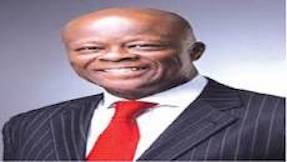
By Tony Obiechina, Abuja
The Minister of Finance and Coordinating Minister of the Economy, Wale Edun, has assured of the government’s dedication and commitment towards creating a conducive business environment that will enable multinational companies to expand their investments in the country with a view to contributing to the nation’s economic growth and development.
Edun gave the assurance when he received and met with a delegation in his office in Abuja from Microsoft Nigeria, led by the Country Manager Nigeria, Olatomiwa Williams.
The Minister welcomed Microsoft’s commitment to Nigeria and emphasized the administration’s understanding of the strategic importance of sector leaders like Microsoft.
The meeting, he said, marks a significant step forward in fostering a collaborative relationship between the federal government and multinational technology companies, driving economic development and innovation in Nigeria.
Speaking earlier, Microsoft Country Manager for Nigeria, Olatomiwa Williams, stated that the team was on the visit to address recent media reports and explore potential areas of collaboration between the federal government and the technology giant.
The Managing Director reassured the Minister that Microsoft remains committed to its operations in Nigeria, contrary to recent speculation.
He expressed the company’s desire to partner with the government in areas of mutual interest, including cyber security and youth upskilling.
Customs Officers Reject N1.5m Bribe from Vandals – Comptroller
Officers and men of the Nigerian Customs Service, Sokoto/Zamfara Command were said to have turned down N1.5m bribe from suspected vandals of railway tracks.
The operatives of the command on June 8, clamped down on a notorious cartel that specialises in the vandalisation of railway tracks, alongside a truck conveying a 20-foot container laden with vandalised railway tracks.
Also in the process, three suspects were intercepted by the command’s monitoring team at Kajiji along Kebbi Road.
The Comptroller of Customs, Sokoto/Zamfara Commands, Kamal Muhammed, while briefing newsmen at the command’s headquarters in Sokoto on Monday, said, “The suspects could not tender evidence of allocation from the Federal Ministry of Transport, instead made an overture to bribe the officers with N1.5m and even making an advance cash offer of N300, 000.
“Out of patriotism and integrity, the officers chose the path of honour by detaining them at the command headquarters.
“As we are all aware, Nigeria Security and Civil Defence is the agency mandated to secure critical national assets, conforming with the collaboration policy thrust of the CGC, the Area Command will hand over the suspects, the truck, and its content and the N300,000 cash to the Commander NSCDC Sokoto Command who is here with us for further investigation and prosecution”
Speaking further, he noted that in compliance with the orders of the Comptroller General of Customs to seal up routes used by smugglers to smuggle contraband, officers of the whirlwind tactical team intercepted 11,270 litres of Premium Motor Spirit.
He said, “In compliance with the Comptroller General of Customs matching order to seal up all routes used for the smuggling of petroleum products, the Zone ” B” whirlwind tactical team with reinforcement by Officers and men of Sokoto/Zamfara Area Command intercepted 11, 270litrea of Premium Motor Spirit popularly called petrol.
“The maritime and cross border smuggling of PMS hurts the overall supply chain of the product in addition to the possibility of funding criminal activities with the proceeds.
“Even with the removal of subsidy, the smuggling of PMS brings about an extra cost burden on the country both in terms of security of supply and securing of the scarce foreign exchange used to import the product.”
He added that the command will auction the sale of 11,270 litres of Petroleum Motor Spirits, at the rate of 180 naira per litre to the general public in Sokoto.
“In line with extant laws and the approval by the Comptroller General of Customs, the seized PMS will be auctioned to the general public today at a token of 180 naira per litre.
“Relatedly, last week the Whirwild Zone B tactical team auctioned 20,142 litres of PMS to the general public at Kebbi Area Command”, he added.
Similarly, in August 2023, the Tincan Island Command of the Nigeria Customs Service said it rejected the N50m bribe offered by a smuggler involved in the importation of tramadol and other drugs for his container to be released.
The Customs Area Comptroller of Tincan, Adekunle Oloyede, said this while addressing journalists at the command.
He said the suspect, Boniface Ike, accepted ownership of two 40-foot containers arrested with drugs with the duty paid value of N550m.
Unilorin Introduces Self-defence, Combat Training for Students
The Department of Criminology and Security Studies, University of Ilorin (Unilorin), has taken steps to equip its students with essential skills by introducing self-defence and combat training as a vocation.
Dr Adedeji Oyenuga, a Visiting Scholar in the institution’s Department of Criminology, disclosed this on Monday in Ilorin.
He spoke at the maiden edition of the combat training at the university’s sports complex.
Oyenuga who is an Associate Professor at the Lagos State University (LASU), however, said the training could not be immediately integrated into the curriculum due to the proposal’s lateness.
He explained that the university had recognised the importance of this initiative and decided to offer it as a vocational activity before incorporating it into the curriculum at a later date.
The don highlighted the significance of self-defence within the context of security studies.
“I commend the University for thinking outside the box and swiftly approving the idea of practical combat training,” he said.
Oyenuga pointed out that the integration of self-defence and combat training into the curriculum reflected the university’s commitment to producing well-rounded graduates.
He said these would be those who are academically proficient and capable of ensuring personal safety and the security of others.
“This innovative approach aligns with the evolving landscape of Criminology and Security Studies, which demands a comprehensive understanding of practical self-defence techniques,” the don explained.
InfoTech
NITDA calls for more synergy to develop digital economy

The National Information Technology Development Agency (NITDA) has called on individuals, governments, private sector, academic and others in the society for more collaboration to enhance digital economy sector to develop the country.
Dr Kashifu Inuwa, Director-General of NITDA, made the call at the stakeholders engagement and ecosystem development programme, organised by the agency which on Thursday in Akure.
The theme of the programme was “Creating opportunities, breaking boundaries towards digitalization and entrepreneurial evolution”.
Inuwa, who was represented by Mr Oladejo Olawumi, Director, Standard Guidelines and Framework in the agency, said if digital technology could be adopted by all, it would provide opportunities for all parts of the economy, especially health, education and agriculture.
The DG, who explained that the agency had established Office for Nigerian Digital Innovation (ONDI) and the National Centre for Artificial Intelligence and Robotics (NCAIR), said it was now that digital technology should became a part of every aspect of the society.
According to him, modern digital technologies have changed how uncertainty in business processes and results works and how to handle the uncertainty.
“It is not just a fancy word but it is what causes big changes in industries. It changes the way we do business, take care of our health, educate ourselves, and even govern.
“So, digitalisation changes things for the better, eliminates obstacles, and creates new chances that we couldn’t even think of before. Our responsibility is to take hold of these possibilities and use them to transform society.
“Let us be the architects of a future where opportunities are abundant, boundaries are shattered, and every entrepreneur’s vision finds a productive ground to flourish.
“Together, we have the power to shape the destiny of our digital nation,” Inuwa said.
Dr Mohammed Agbali, Senior Manager, Research and Development in NITDA, who presented a paper, said it was time for citizens to take advantage and opportunity in digital economy sector for the development of the country.
According to him, the opportunity to create job on Nigeria today is more available in digital economy than any other sectors.
Agbali explained that Apple and Amazon were contributing to the development of the USA in terms of tax and employment, saying that Nigerians needed to grow their own company so that the country could develop economically.
“Let us start supporting digital technology companies in Nigeria so that they can develop to the level of contributing to the development and economy of the country,” he said.
He, therefore, called on youths to take the advantage of digital economy to build skills so that they could participate adequately in the space.
Mr Olumbe Akinkugbe, Chairman of the Ondo State Information Technology Agency (SITA), said the state would continue to support NITDA for them to achieve their aims in digital economy.
Akinkugbe said the stakeholders’ engagement would move the state and county forward, to ensure the digital- based entrepreneurship and economy.
The SITA chairman said that the state had made entrepreneurial activities seamless by creating the enabling environment for the people through SITA for the government activities in I.T solution.
“This stakeholders engagement will enhance greater development in the digital economy of the state and I have no doubt in my mind that NITDA has thought it well in the choice of the state.
“We will continue to welcome such opportunity in future and also support NITDA collaboration and partnership toward rapid development,” he said.
One of the participants, Mr Godspower Otali, CEO of Wetin Dey Code Academy, appreciated the agency for bringing the programme to the grassroots.
He said it had bridged gap between the government and people, and also boosted the morale of the youth in the state and county at large.
According to Otali, youths need to equip and develop themselves in the skills of ITC to change their life for better in the future.
“It’s right time our people come to technology space because that’s the new blood money in the country.
“Oil has failed us, everything has failed us but digital space and digital skills is not failing us, so, I will encourage everyone, especially youths, to get digital skills,” he said.

